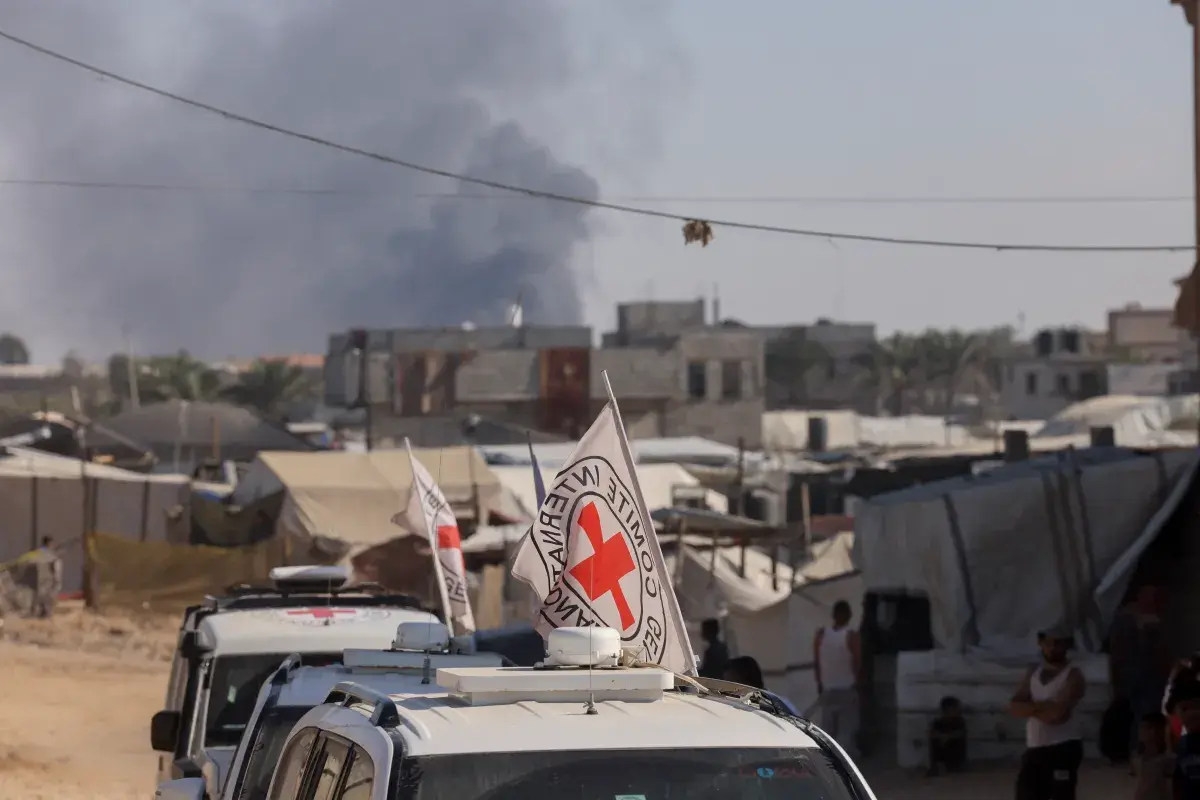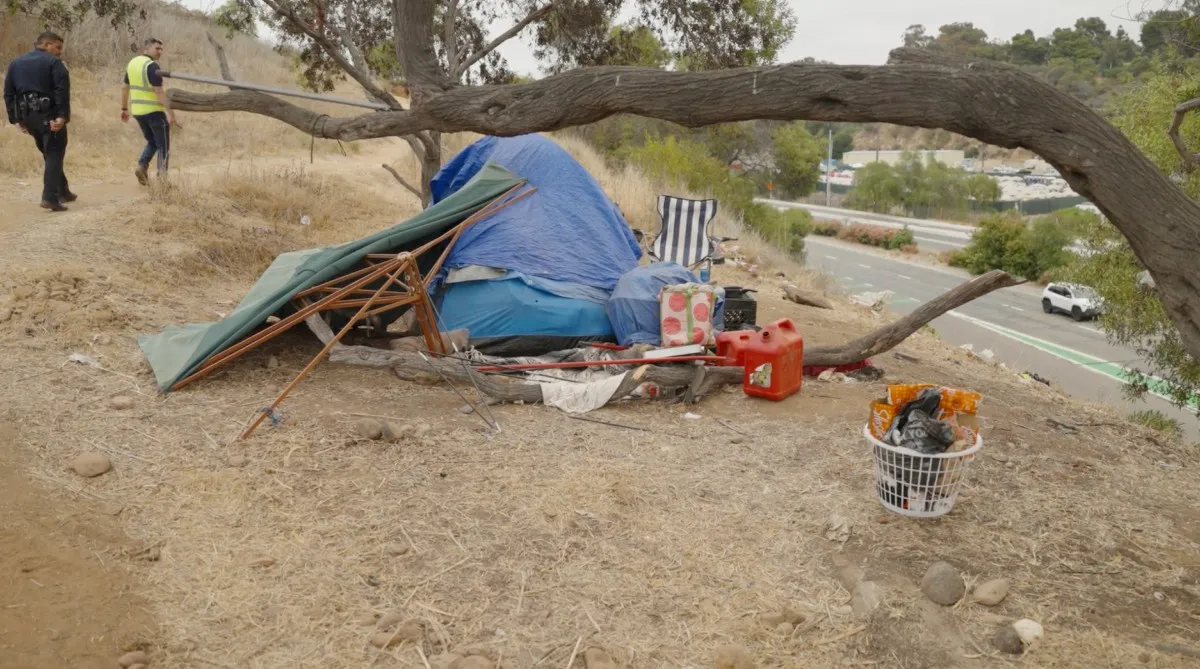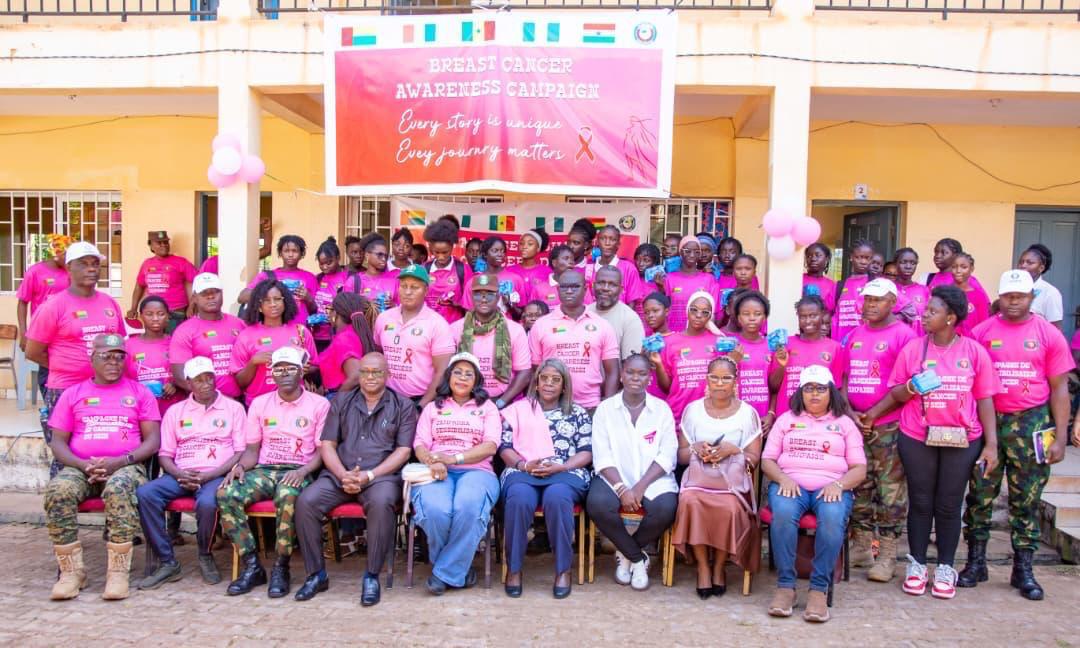Copyright Newsweek

Amid the untold death and destruction that has ravaged the Gaza Strip for the past two years and continues to strike with little notice, one group is tasked with delivering Israeli hostages and Palestinian prisoners—alive and dead—across one of the bloodiest front lines on Earth. It's just one of the seemingly impossible jobs taken on by the International Committee of the Red Cross (ICRC), the Geneva-based group with 350 personnel on the ground in Gaza navigating both political and security complexities as part of a global mission to restore faith in the rules of war and international humanitarian law. ICRC President Mirjana Spoljaric Egger says the scope of this challenge has few comparisons, even for one of the world's oldest humanitarian organizations with more than 160 years of experience responding to global crises. "There are few situations of conflict that challenge us in equal ways as Gaza, because of the constraints, because of the result of the fighting, because of the political dimension, but this is what we were created for," Egger told Newsweek. "We cannot drop the ball." At the Heart of the Handover The ICRC's presence in Gaza far predates the current conflict and constitutes one of the few operations capable of maintaining constant channels of communication with both Israel and Hamas, one of what Egger estimated to be around 250 armed non-state actors with whom her organization speaks with around the world on a daily basis. "We've worked in Gaza for decades," Egger said. "We've talked to Hamas since its creation, as we have spoken with Israeli authorities since the creation of Israel. So, there's a long-standing dialogue, and there's a very high familiarity with each other's positions and how we work, how we operate." "There are few countries with whom we've had more dialogue than with Israel and Israeli authorities," she added. "That's due to the circumstances and our role that we play there." While Gaza has been no stranger to conflict throughout the years, no event has wrought more devastation for both Israelis and Palestinians than the conflict spurred by the Islamist Palestinian Hamas movement's October 7, 2023, attack. The sudden assault killed around 1,200 people in Israel and led to the abduction of around 250 more, with more than 67,000 killed in Gaza throughout the ensuing war, according to the Palestinian Health Ministry based in the territory, and thousands more detained. The return of detainees has been a core demand of both Israel and Hamas. And while mediators such as the United States, Egypt and Qatar play key roles in setting the political conditions for deals, the ICRC alone is poised to facilitate such swaps. Since October 7, 2023, the ICRC has facilitated the return of 23 deceased Israeli hostages and 195 deceased Palestinian detainees, as well as 160 living Israeli hostages and 3,500 living Palestinian detainees. Now, the search goes on for the remains of 13 Israeli hostages believed to be hidden somewhere in the rubble across Gaza, where thousands of Palestinian bodies also lie. Egger says all of them, regardless of who they are, "deserve adequate recovery and dignified burial." The recovery process is plagued a deep sense of distrust that has prevailed between the two parties both throughout the past two years of war and in a ceasefire period already marked by dueling accusations of violations. Both sides have also charged one another with mistreatment of detainees and failure to uphold the spirit of the ceasefire deal. Israeli officials have alleged that, in addition to the grueling conditions under which hostages were kept in by Hamas, slain citizens the group claimed were killed by Israeli strikes bore signs of summary executions upon their return. Hamas has asserted that the state of returned Palestinians indicated practices of systematic abuse and torture. The ICRC has taken a proactive role in identifying the conditions under which Israelis and Palestinians are being held and advising both sides on improving them. "When we visit detention facilities, we ascertain the conditions, identify the people, and bring back the message and information to the families that the person is alive, that the person as well, and we exchange written messages between the two sides," Egger said. When it comes to hostages, she said "they have to be released first and foremost, because it's illegal to hold hostages, but while they are being kept, we discussed with Hamas their medical needs" and "we were able to tell them what the hostages suffer from and what kind of supplies they need." "We would have been able to deliver these supplies ourselves, if that had been possible, but we know how much public debate has been taking place there," she added. "We discuss with the warring parties what is needed to protect the lives and the dignity of civilians, how humanitarian assistance needs to be delivered in order to allow them to protect themselves adequately and as human beings in a humane way." A Necessary Neutrality In a conflict that has flared tempers across the globe, Egger said that the ICRC's strict neutrality is a key element of what makes the organization uniquely suited to perform its duties. In this regard, she said both Israel and Hamas are held to the same standards, a tenet she regarded as "the core of neutrality." But this position has also brought with it criticism from those who suspect ulterior motives. "Actually, we are most criticized for our neutrality, because when you are a party to a conflict, you don't accept that the others are being treated the same way, especially not if you consider the other the aggressor," Egger said. "But for us, it can be the qualifier, because we need to ensure that we can reach the people who need support. And for us, a human life is a human life." "So, a child that needs help on this side or that side of the line, for us, is deserving of the same protection and in the face of the law they also have, the same protections and the same rights, and this is what we stand for," she added. "It's difficult for foreign parties to accept but eventually they accept it because it's the only guarantee also that we will be able to serve their people." In an incident that has further fueled Israeli convictions that its foe was deliberately delaying the recovery process and simultaneously tested the ICRC's stance, the Israel Defense Forces released drone footage purporting to show Hamas fighters staging the discovery of a hostage's body in Gaza City. Israeli Prime Minister Benjamin Netanyahu's office welcomed the ICRC's public condemnation but indicated the potential complicity of the group's workers on the ground. Egger said the incident underlined the complexities of the broader quest to both return the living and dead to their loved ones and reinforce the tenets of international law. "The recovery of bodies is enormously difficult in the current circumstances, and this operation for us will continue as long as it takes, because we want the families to be able to find closure bury their relatives in a dignified way," Egger said. "Now, incidents happen. They happened in the past. We address them. Sometimes we become public, as we did [Tuesday]. We said what happened is unacceptable. There's no excuse." "But we continue engaging with the parties," she added, "because for us, what is important is to bring back the bodies of the relatives of the families, according to the agreement." This neutrality does not constitute inaction, however. While the ICRC's mandate, rooted in the 1949 Geneva Convention adopted after World War II, does not include actively enforcing efforts to prevent violations of international law, the organization does record infringements and engages directly—often confidentially—with the concerned party, be it in Gaza, Ukraine or any of the many areas of crisis the ICRC is active in across the globe. "Our objective is to provide humanitarian assistance, nothing else. And in this we remain confidential," Egger said. "At the same time, we hold the mandate of guardian of international humanitarian law, the rules of war that are enshrined in these conventions of 1949, so the states want us to have this dialogue with all states across the globe on what a conduct of hostilities looks like in order to be compliant with these rules of war." "But we don't do this publicly," she added. "If we think that certain things are wrong and in violation with the law, we address it with the party concerned, but never with third parties. Our reports then go to this party, and they're not shared with anyone else." The historic mission has also produced an expansive archive of conflicts dating back to the ICRC's foundation in 1863 by Swiss humanitarian activist Henry Dunant. To this day the ICRC's board is comprised solely of Swiss nationals, all private citizens. "And throughout this time, we have always consistently remained neutral, impartial, independent," Egger said, "and also, when we have to, confidential." Working With the White House While the ICRC is a private organization, contributions from various governments constitute up to 82 percent of its funding. The United States represents the largest share. As President Donald Trump's administration aims to revisit U.S. foreign spending practices, the ICRC has also begun to downsize, cutting a third of its budget and around a quarter of its staff—including some 5,000 positions worldwide—since Egger took office in October 2022. "The U.S. has always been a very crucial supporter of the ICRC," Egger said. "We have a long-standing tradition of cooperation, both in terms of intervening in different situations of armed violence, but also in discussing the application of international humanitarian law in the given context, and this cooperation has not been weakened." "In the meantime, we receive less funding, but the U.S. remains our most significant donor, and we also are committed to remaining a trusted partner for the U.S. authorities, including this administration," she added, "and the cooperation is strong as you can see now in Gaza and in other parts of the world, because we need the political influence that the U.S. bring to the table." This influence is particularly vital, she argued, at a time when the constant escalations in large-scale conflict have put international commitments to the rules of war to the test. "We cannot just say there are no rules," Egger said. "Nobody will accept that there are no rules, because history has shown especially the First and the Second World War, that no rules end in total disaster for everyone involved. "It's, at the end, auto destructive to say we will dismantle the legal frameworks, because their absence will hit you as much as and as fast as your adversary." And with the White House pursuing a policy of prioritizing putting an end to wars around the world, Egger said that the ICRC's mission has proven crucial to this endeavor. "If you want to promote peace deals, you have a very solid pathway with the rules of war," Egger said. "And we work with the U.S. in the Democratic Republic of Congo, in Sudan, in the Middle East, and we prove every day that this is a good pathway, and this is very often the only pathway to a peace deal." "It requires a lot of patience and a lot of persistence," she added, "and this is what we were made for, and this is what we are criticized for, but I haven't seen a replacement yet that works better."



